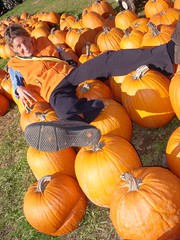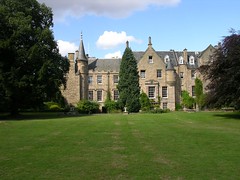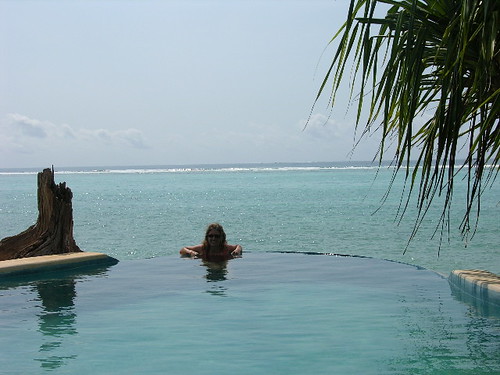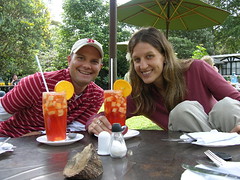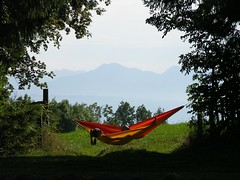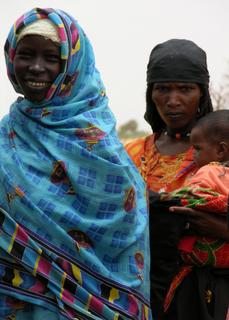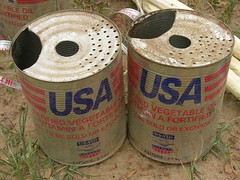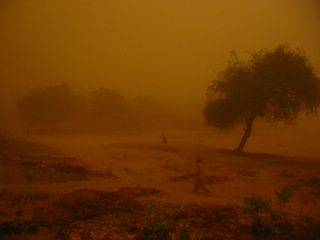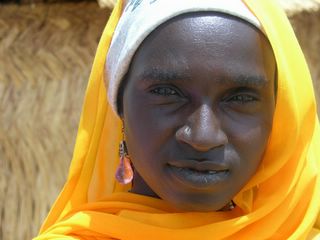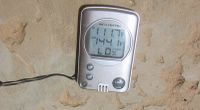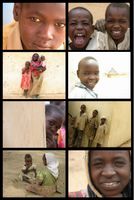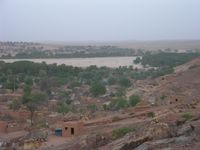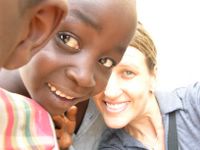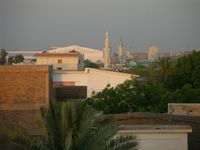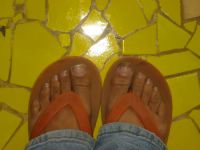My head is still spinning from spending the first week of June out in the field. I’m working to make sense of all I got to see and do, but as someone famous enough to be quoted once said, “If I could think, then I wouldn’t write”. In lieu of having my thoughts sorted out and packaged up to properly to share, here are some very random snippets from my journal along the way...
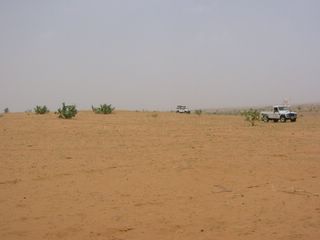
…Driving into the field. The color of the sandy landscape has mutated to look like bread in its early stages of being covered with mold. The green fuzz is grass and it is hard to believe that this is the same sandy barren landscape that I had crossed days before. It is a wonder what one little rain can do to the desert. Today’s little drive included a tour of a huge IDP camp, sitting on a camel, my first spotting of Arab nomads, one flat tire, and one goat accidentally sacrificed under the wheels of our new LandCruiser on its inaugural field voyage. We actually didn’t kill this goat, just maimed and traumatized it- broke 2 of its legs, and paid the little girl who was herding the flock 5,000 Dinar. About 20$, what we paid for the price of our recklessness, was more than the animal’s value I was told by one of our local guys- especially since it will live… But the goat was pregnant and the people who owned the animal were displaced and very bad off, and it was a way we could help, he told me. I left the crime scene thinking about how these people really do care for one another. There is a lot of generosity and hospitality, and even joy, I might add, in the midst of the life-snatching poverty all around. It made me think of the beatitude ‘blessed are the poor in heart, for they shall see God.’ I wonder if the poor don’t get a better view of God than we do sometimes because they have so little to block their vision.
…I am ushered into the base and introduced to Zum Zum, an old woman with strong creases in her face and a half dozen fetish charms perfectly circling her neck. Her head is wrapped in a black chiffon like scarf- the sun radiating through its sheerness and elegantly framing her national geographic like features. If I could speak, I’d ask her story.
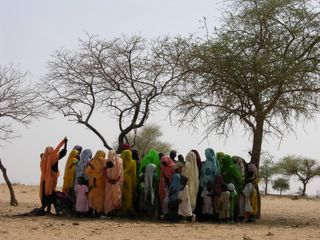
… We spent the afternoon after arriving in the village of Kamoon just across the wadi from Um Tagouk. Already the wadis are starting to fill with water and soon our trucks won’t be able to cross the rushing rivers. How can this actually be? Our nutrition team is working to set up a new feeding center in this village because many people walk a few hours to our other center to receive rations. We spend hours there weighing children in a scale that hangs from a branch in the shade of a tree. The organized, disorganized fashion of the whole operation reminds me a little bit of screening day. I have no translator, but I manage to entertain myself for the hours that I can’t be of much help. I have mastered in Arabic the friendly phrases “is mak manu” (what is your name), “umra come” (how old are you), “sakin wen” (where do you live) and “e-tal come” (how many children do you have). These provide a few minutes of entertainment, generally followed another longer period of my use of the phrase “dee-shanu” (what is this) in pointing to everything imaginable. A lackluster village trip turned into a friendly vocabulary lesson for me and a comedy show for the people gathered around me laughing as I attempt name everything in site flip flop, earring, braid, bracelet, watch, tree. I am certainly acquiring the most random of Arabic vocabularies.
… I just got the best night of sleep ever since arriving in Sudan. Um Tagouk is cold and the stars are incredible- almost like being at sea. I woke up somewhere in the middle of the night and realized that I was curled up in my sleeping bag. I think I must have smiled in my sleep. In Geneina I usually wake up in the middle of the night soaked in my own sweat- feeling like I have malaria again. I can’t wait to go to sleep again tonight.
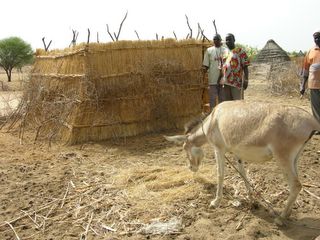
…It is Monday morning, and I am on the “Um Tagouk Toilet Tour” as I call it for lack of something better to refer to my mission du jour. Today I am tasked with visiting villages which have built pit latrines and finding some creative way to express this to the rest of the world which doesn’t frequently include the phrase ‘open defecation’ in their daily discussions.
I’m traveling with our sanitation project manager Ananias, a 62 year old amazing southern Sudanese man who knows this ‘crap’ (bad pun intended). He talks about human excrement with an eloquence and dignity that reminds me of Ken Hilton, super-plumber of the Anastasis. He’s nearing completion of his task to oversee the construction of 1725 latrines in our 3 project areas. Digging a hole is just the start of the task I learn- the greatest dimension of the project is guiding the people through the change in their belief system. I think about it for a minute. People have been taught their whole life to “go” far away from their compounds and villages in the open area, and then suddenly someone tells them to dig a hole in their house and crap in it. Leaving my own knowledge behind, from their point of view it does seem preposterous. Its truly an amazing project I see as I continue my tour with the team, taking pictures of holes in the ground, avoiding the flies, and all the time wondering what words I will possibly use to share this adventure.
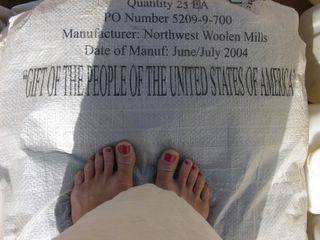
… I’ve moved on to Kera Village, another tiny place on the outskirts of Um Tagouk. There are about 250 people gathered around a square in the clearing. Although the space is immense, they are clustered together under a few spaces where there is any shade from a tree or a little thatched awning. Men in one place, women in another. They have been here all day and waiting for their name to be called, have their finger stamped purple, and to walk away with a bucket, 2 big jugs, 10 bars of soap, 2 blankets and one tarp. This is the first distribution of about 10 that our hygiene team is doing this week. My mind is wandering in 1,000 different directions. It is hot and hard to be engaged because I’ve been sitting here a long time, the show is all going on in Arabic and my camera battery is dead. Apart from reading body language, without a translator, all I can do is sit here and make observations… Observation #1. There are many reasons that I wouldn’t want to be a woman born in Sudan (thoughts on the harsh life of women to follow another day). The sole benefit of being a woman here is the amount of color that women to have. Men wear all white all the time. The women live in a vivid world. The vibrant colors that hide them from the world are beautiful and energetic, clashing with such elegance that even normal oranges could never attain. Does color compensate for oppression though? Do they know they are oppressed? …Observation #2 The blankets and tarps that we are distributing are stamped in an enormous poster size font “A GIFT TO YOU FROM THE AMERICAN PEOPLE”. I ponder the purpose of this declaration. Is it written there like a big to/from gift tag so the illiterate beneficiaries can decipher the blankets origin upon completing their literacy program? Is it written in an aid organization staking your territory sort of way? Perhaps it is just written there so hot and bored and cynical aid workers like me can see where all the money they paid in taxes went last year. It isn’t just America though, everyone stamps their stuff, but today I’m wondering why. Thanks to all my fellow Americans for the blankets from the people of Kera Village- they can’t read, but they carried their goods away with smiles, and they’ll be thankful to be covered up when the rains come.
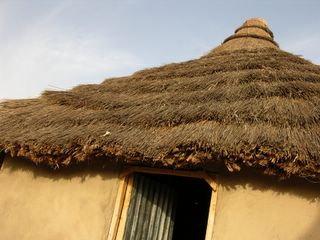
… The days in the field are long and hot, but they are truly precious. The evenings get so cool and the sun is falling so delicately right now on the mud brick walls that mark our compound. The sky is so blue and the thatched roof of the tukul (mud hut) looks as elegant as any thatched roof ever could in the golden glow.
… I feel like I’m in a zoo. I’m sitting in the back of the new LandCruiser Buffalo which is windows all around, and there are dozens of faces pressed against the window staring in at me. Literally, on all 4 sides. I’m in Karda village in Um Tagouk. I’m with the nutrition team again and they are frantically rushing from village to village to see how many people they can possibly register for the expansion of their supplementary feeding program before the rains turn things in Darfur to chaos. In my opinion, this morning is already chaos which is why I’ve abandoned the crowd and sought refuge away from the masses here in my little fishbowl. One of the nice faces banged on the window and handed in a pot of super sweet tea, I’m trapped inside getting my sugar fix for the morning.
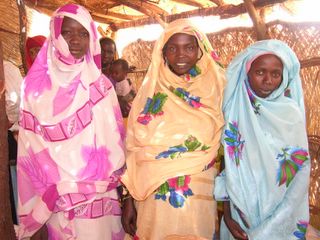
… Halima Mohammed Abdulai (the middle one). She is 9 ½ months pregnant according to her calculations. Her smile when she laughs as I try to say her name is almost as big as her belly which some of her local friends assess could possibly contain twins due to its enormity. Although you can't see her size hidden under her billowing tobe,I can’t imagine being as pregnant as Halima is in this unbearable heat. I can also not fathom that the reason she claims she doesn’t know if she’s having twins is because she has never seen a doctor in her whole pregnancy. I think of my friends with their 3D ultrasound pictures of their unborn babies on their fridges, and the contrast of Halima growing bigger by the day in her village where there is no accessibility to prenatal checkups of any type. Halima Mohammed Abdulai, I say her name again and again. I want to remember it so when I return to her village I can meet her new born baby, or two…

… The drive home I managed to land in the only vehicle without AC. There is enough wind to keep me cool as our convoy moves across the open road, but I am slowly completely covered by dust. The only casualty of the trip was yet another sheep- this one not so lucky to make it out of the meeting alive. It did make for an interesting pit stop however, as the animal was owned by a nomadic family who we had to go visit in order to make restitution. Despite all that I’ve seen and all that I know, I am still amazed that there are people who exist as nomads in the day and age of our starbucks world. Back to Geneina- our little primitive town that seems like a bustling big city coming from out there. Just a few more weeks until I get to go back out- the place will probably be as green as a city park by then, and I’m already looking forward to it!
Is 32:16 - Justice will dwell in the desert, and righteousness live in the fertile field. The fruit of righteousness will be peace, the effect of righteousness will be quietness and confidence forever. My people will live in peaceful dwelling places, in secure homes, in undisturbed places of rest.
